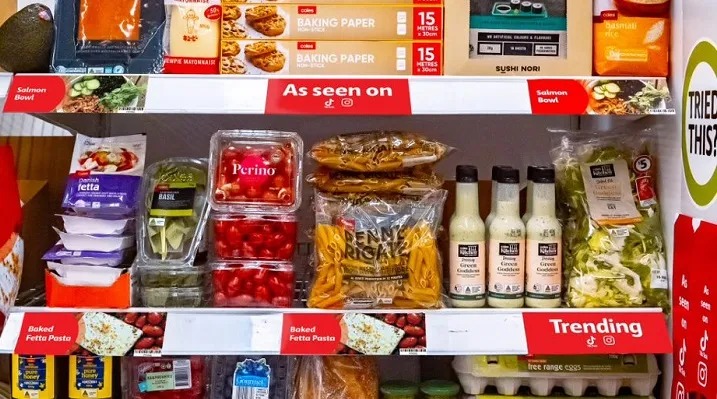
In the age of social media, it can feel like a marketer’s job is never done. There are new platforms to join, memes to know, and trends to participate in, not to mention major retail events, such as Black Friday, Mother’s Day and other recurring holidays to promote. And yet, year after year, many brands make the time to come up with an April Fools’ Day prank.
This year saw Australian supermarket Coles fake-launch a new aisle where customers can purchase ingredients for TikTok-viral recipes like feta pasta and salmon bowls, US-based beauty subscription brand Ipsy offer magnetic eyelashes for pets, and UK-based delivery platform Deliveroo ban pineapple as a pizza topping, among many other good-natured pranks. Meanwhile, Dyson’s new air-purifying headphones, launched on 30 March, left many people wishing it were an April Fools’ Day joke. According to media reports, it’s not.
Given all the downfalls of getting it wrong, we asked Louise Grimmer, a senior lecturer in marketing at University of Tasmania, and Phoebe Netto, managing director of Pure Public Relations, to weigh in on what makes for a great April Fools’ Day campaign, and whether it’s worth the effort.
What makes for a great April Fools’ Day prank?
Louise Grimmer: I think we’ve all come to expect announcements from some of the best known global brands each year – some of my favourites usually come from FMCG brands – this year Arnott’s Vegemite Tim Tam and McDonald’s Sweet and Sour Sundae worked well for me. Simple message, an unthinkable new product, makes consumers stop and think and hopefully have a chuckle – something we all need at the moment.
What types of businesses are best suited to it?
Phoebe Netto: Not all brands can get away with fun, and if your brand has never injected fun, cheekiness or humour into its messaging and approach, this is not the time to start. Be true to your brand.
If you are going to give it a go, fully commit to doing it well. Incorporate multiple channels or assets into the idea, beyond writing a media release. Make it shareable, and consider if you can leverage it into a longer-term campaign. For example, if there is demand for your ‘fake’ idea, perhaps that can be used as market research that informs a new brand concept, product or service. Can you create a dedicated web page or gamified campaign, competition, media and customer gifting program, or other kind of interactive initiative? Equally, if the idea alone is strong enough to have cut-through, simplicity can work well.
LG: I do think that it is really only national and global – very well-known – brands that can leverage this type of campaign. Smaller or local brands usually find this type of strategy isn’t particularly successful and their April Fools’ Day efforts usually won’t have the reach of those from larger brands, and so is it really worth it?
What are some common pitfalls to avoid?
LG: It’s important to have a really simple message that will have wide appeal – we all know this can be really difficult to achieve! In the current economic climate, I’d also recommend steering clear of looking like the April Fools’ Day campaign has cost a lot of money.
PN: People don’t want to feel deceived, and there is a difference between a short-term joking trick, and someone feeling led astray and committing time, money or energy to something that ends up being false and embarrasses them. The idea is to get a laugh!
If the April Fools’ idea is too far-fetched, random, or not aligned to what is well-known as the brand values, offering, and reputation, then it will miss the mark. It should be close enough that it could be plausible, until you think about it a little more or explore it further.
Don’t leave it to the last-minute or make it an afterthought. Only sending out a media release or a social media post without a more comprehensive execution, such as making it something visual or creating a prototype that supports the joke idea, will fall short.
Is it worth the effort?
LG: I’m a bit on the fence about April Fools’ Day press releases – for some brands they can work really well, they are a bit of fun and if the media picks up the story then that is obviously great for the brand. It’s important to match up the brand with the right type of humorous message and get the execution right. This can be tricky for many brands.
PN: Over time it has evolved to be something that has some winners amongst many mediocre attempts. And unfortunately that has lessened the impact and overall fun of the tradition. But for those special gems of brilliance, it is a way to incorporate fun and surprise into the relationship we all have with a brand.
The post April Fools’ Day: worth the effort, or a waste of time? appeared first on Inside Retail.

